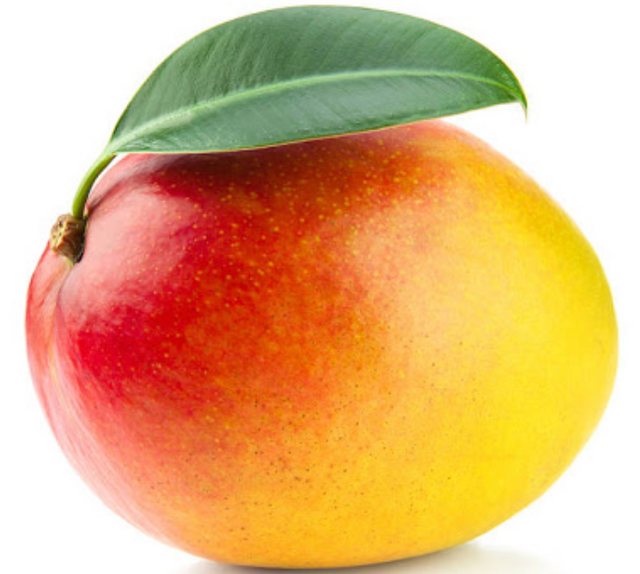Mango health benefits...
Table of ContentsOrganic Facts
6MM Monthly Visitors
Home › Fruits › Mango
11 Surprising Benefits Of Mangos
1 Likes 17 Comments
When you savor delicious and succulent mangos every season, you probably don’t think about the immense health benefits coming with every bite.
TABLE OF CONTENTS
What is a Mango?
Nutritional Value of Mangos
Mangos Nutrition Facts
Health Benefits of Mangos
Maintain Overall Health
Prevent Cancer
Promote Weight Gain
Aid in Digestion
Cure Anemia
Useful in Pregnancy
Cure Acne
Delay Aging
Promote Brain Health
Boost Immunity
Manage Diabetes
What are Mango Allergies?
How to Buy & Store Mangos?
References
Comments
What is a Mango?
Mango is known as the king of fruits. Beyond the sweet, luscious taste of mangos, they also contain an abundance of vitamins, minerals, and antioxidants that assure your optimum health. For decades, mangos have been used to soothe the stomach. Similar to papayas, they contain certain enzymes with stomach comforting properties. As the popularity of mangos has spread, many food manufacturers have introduced jellies, jams, squash, pickles, marinades, and spices that include pure mango flavor.
Mango is rich in fiber, so if you have at least one mango every day, you are almost guaranteed to prevent constipation, piles, and symptoms of irritable bowel syndrome (IBS). Research published in Comprehensive Reviews in Food Science and Food Safety have demonstrated that dietary fiber has a positive effect on eliminating degenerative diseases, including certain cancers and heart conditions. [1] Now you have even more reasons to include this delicious fruit in your daily diet. The more you participate in strenuous activities, the more potassium you lose, which is yet another helpful effect of mangos – high potassium content!
Nutritional Value of Mangos
Mangos belong to the same family as that of pistachios, gandaria, mombin, and cashews. [2] Common names for mangos are mangot, manga, and mangou, depending on the region or nation. They originated in southern Asia, more specifically in Burma and eastern India, almost 4,000 years ago. Many stories in Indian mythology mention the mango plant, and Lord Buddha is said to have often meditated in a mango grove. Mango cultivation first spread to Malaysia, eastern Asia, and eastern Africa and was finally introduced to California around 1880. They were introduced to Africa and Brazil by Portuguese explorers, while mango cultivation started in Hawaii and Florida around the 19th century.
According to Indian beliefs, mangos symbolize life (the national fruit of India) and are used in almost every sacred ritual. [3] Mango leaves are almost always used for festivals and wedding decorations. ‘Chutney’ made from Indian mangos has become universally popular. [4] Today, India remains the world’s major producer of mangos, but Thailand, China, Brazil, and Mexico also cultivate this highly beneficial fruit.
Mangos Nutrition Facts
Mangos are very low in saturated fat, cholesterol, and sodium. They are also an excellent source of dietary fiber and vitamin B6, as well as a good source of vitamin A and vitamin C. They are rich in minerals like potassium, magnesium, and copper, and they are one of the best sources of quercetin, beta-carotene, and astragalin. [5]
Health Benefits of Mangos
Let’s look at the most popular health benefits of mangoes in detail:
mangos
Maintain Overall Health
Mangos have an impressive vitamin content that assures overall health. They are rich in potassium (4% in 156 mg) and magnesium (2% in 9 mg) and are a great remedy for high blood pressure. [6] They also contain selenium, calcium, iron, and phosphorus. Mangos are vitamin powerhouses as they are rich in riboflavin, vitamin B6, vitamin A, vitamin C, vitamin E, vitamin K, niacin, folate, thiamin, and pantothenic acid. These components help you avoid a host of diseases that can come from deficiencies of these vitamins and minerals. The vitamin E content in these fruits can even help boost your sex life by triggering the activity of your sex hormones. Powerful antioxidants in mangos have the power to neutralize free radicals throughout the body. Heart diseases, premature aging, cancer, and degenerative diseases are due to these free radicals that damage the cells.
Prevent Cancer
Mangos have high amounts of pectin, a soluble dietary fiber that efficiently contributes to lower cholesterol levels in the blood. [7] Pectin can also help prevent the development of prostate cancer. [8] Recently, studies at The Institute for Food Research discovered that a compound within pectin combines with galectin 3 (a protein playing a significant role in all the stages of cancer). The European Prospective Investigation of Cancer also has come up with a strong association between eating a mango and lowering the risk of cancer of the gastrointestinal tract.
Promote Weight Gain
Mango consumption is one of the easiest ways to gain weight. 150g of mango has around 86 calories, which can be absorbed easily by the body. [9] Moreover, they contain starch, which transforms into sugar and aids in gaining weight. Mango milkshakes will accelerate the process of gaining weight since they also contain milk, and are notoriously delicious!